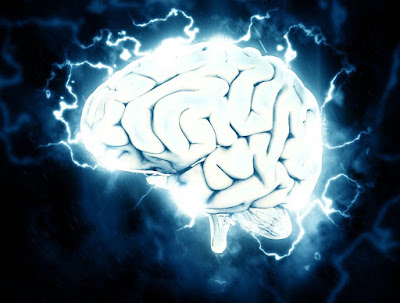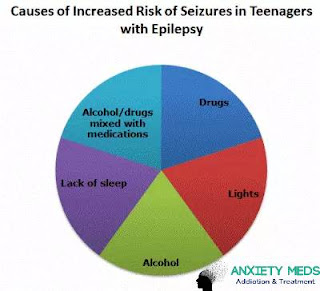Epilepsy and Seizure
Overeview
Epilepsy is a central nervous system (neurological) disorder in which brain movement gets abnormal, causing seizures or times of abnormal conduct, sensations, and once in a while loss of awareness.Anybody can create epilepsy. Epilepsy affects both two males and females all things considered, ethnic foundations and ages.
Seizure side effects can fluctuate broadly. A few people with epilepsy essentially gaze vacantly for a couple of moments during a seizure, while others more than once jerk their arms or legs. Having a solitary seizure doesn't mean you have epilepsy. In any event two ridiculous seizures are commonly required for an epilepsy determination.
Treatment with meds or in some cases medical procedure can control seizures for most of individuals with epilepsy. A few people require long lasting treatment to control seizures, yet for other people, the seizures in the end disappear. A few kids with epilepsy may grow out of the condition with age.
Symptoms
Because epilepsy is brought about by anomalous action in the mind, seizures can affect any process your brain coordinates. Seizure signs and symptoms may include:. Temporary confusion
. A gazing spell
. Uncontrollable developments of the arms and legs
. Loss of consciousness or awareness
. Mystic indications, for example, dread, tension or this feels familiar
Symptoms shift contingent upon the kind of seizure. As a rule, an individual with epilepsy will in general have a similar sort of seizure each time, so the side effects will be comparative from scene to scene.
Specialists for the most part order seizures as either central or summed up, in light of how the anomalous cerebrum action starts.
Focal seizures
At the point when seizures seem to result from abnormal action in only one zone of your mind, they're called focal (partial) seizures. These seizures fall into two classes:Focal seizures without loss of cognizance. When called basic partial seizures, these seizures don't cause lost cognizance. They may adjust feelings or change the manner in which things look, smell, feel, taste or sound. They may likewise bring about automatic snapping of a body part, for example, an arm or leg, and unconstrained tactile side effects, for example, shivering, wooziness and blazing lights.
Focal seizures with impaired awareness. When called complex fractional seizures, these seizures include a change or loss of cognizance or mindfulness. During a mind boggling incomplete seizure, you may gaze into space and not react ordinarily to your condition or perform dreary developments, for example, hand scouring, biting, gulping or strolling around and around.
Side effects of central seizures might be mistaken for other neurological issue, for example, headache, narcolepsy or dysfunctional behavior. An exhaustive assessment and testing are expected to recognize epilepsy from different scatters.
Generalized seizures
Seizures that seem to include all zones of the mind are called generalized seizures. Six sorts of generalized seizures exist.Absence seizures.Absence seizures, recently known as petit mal seizures, frequently happen in youngsters and are described by gazing into space or inconspicuous body developments, for example, eye flickering or lip smacking. These seizures may happen in bunches and cause a short loss of mindfulness.
Tonic seizures. Tonic seizures cause solidifying of your muscles. These seizures as a rule influence muscles in your back, arms and legs and may make you tumble to the ground.
Atonic seizures. Atonic seizures, also known as drop seizures, cause lost muscle control, which may make you out of nowhere breakdown or tumble down.
Clonic seizures. Clonic seizures are related with rehashed or cadenced, twitching muscle developments. These seizures for the most part influence the neck, face and arms.
Myoclonic seizures. Myoclonic seizures generally show up as abrupt brief yanks or jerks of your arms and legs.
Tonic-clonic seizures. Tonic-clonic seizures, recently known as excellent mal seizures, are the most sensational kind of epileptic seizure and can cause a sudden loss of awareness, body hardening and shaking, and once in a while loss of bladder control or staying quiet.
When to see a specialist
Look for sure fire clinical assistance if any of the accompanying happens:
The seizure endures over five minutes.
Breathing or cognizance doesn't return after the seizure stops.
A subsequent seizure follows right away.
You have a high fever.
You're encountering heat fatigue.
You're pregnant.
You have diabetes.
You've harmed yourself during the seizure.
In the event that you experience a seizure just because, look for clinical exhortation.
Causes
Epilepsy has no recognizable reason in about a large portion of the individuals with the condition. In the other a large portion of, the condition might be followed to different elements, including:Genetic influence. A few kinds of epilepsy, which are arranged by the sort of seizure you experience or the piece of the brain that is influenced, run in families. In these cases, all things considered, there's a genetic influence .
Specialists have connected a few kinds of epilepsy to explicit qualities, however for a great many people, qualities are just piece of the reason for epilepsy. Certain qualities may make an individual progressively touchy to natural conditions that trigger seizures.
Head injury. Head injury because of a fender bender or other horrendous injury can cause epilepsy.
Brain conditions. Brain conditions that cause harm to the cerebrum, for example, cerebrum tumors or strokes, can cause epilepsy. Stroke is a main source of epilepsy in grown-ups more established than age 35.
Irresistible infections. Irresistible sicknesses, for example, meningitis, AIDS and viral encephalitis, can cause epilepsy.
Pre-birth injury. Prior to birth, babies are touchy to mind harm that could be brought about by a few components, for example, a contamination in the mother, helpless sustenance or oxygen inadequacies. This cerebrum harm can bring about epilepsy or cerebral paralysis.
Formative issue. Epilepsy can some of the time be related with formative issue, for example, chemical imbalance and neurofibromatosis.
Risk factors
Certain elements may expand your danger of epilepsy:Age. The beginning of epilepsy is generally basic in kids and more established grown-ups, however the condition can happen at any age.
Family history. On the off chance that you have a family history of epilepsy, you might be at an expanded danger of building up a seizure issue.
Head injuries. Head injuries are responsible for certain instances of epilepsy. You can lessen your hazard by wearing a safety belt while riding in a vehicle and by wearing a cap while bicycling, skiing, riding a bike or taking part in different exercises with a high danger of head injury.
Stroke and other vascular sicknesses. Stroke and other vein (vascular) ailments can prompt cerebrum harm that may trigger epilepsy. You can find a way to lessen your danger of these sicknesses, including restricting your admission of liquor and staying away from cigarettes, eating a solid eating regimen, and practicing consistently.
Dementia. Dementia can build the danger of epilepsy in more established grown-ups.
Cerebrum contaminations. Diseases, for example, meningitis, which causes irritation in your cerebrum or spinal line, can expand your hazard.
Seizures in youth. High fevers in adolescence can now and again be related with seizures. Kids who have seizures because of high fevers for the most part won't create epilepsy. The danger of epilepsy increments if a kid has a long seizure, another sensory system condition or a family ancestry of epilepsy.
Complications
Having a seizure at specific occasions can prompt conditions that are perilous to yourself or others.Falling. On the off chance that you fall during a seizure, you can harm your head or break a bone.
Suffocating. In the event that you have epilepsy, you're 15 to multiple times bound to suffocate while swimming or washing than the remainder of the populace as a result of the chance of having a seizure while in the water.
Auto crashes. A seizure that causes either loss of mindfulness or control can be hazardous in case you're driving a vehicle or working other hardware.
Numerous states have driver's permit limitations identified with a driver's capacity to control seizures and force a base measure of time that a driver be sans seizure, going from months to years, before being permitted to drive.
Pregnancy inconveniences. Seizures during pregnancy present perils to both mother and infant, and certain enemy of epileptic meds increment the danger of birth abandons. On the off chance that you have epilepsy and you're thinking about getting pregnant, converse with your primary care physician as you plan your pregnancy.
Most ladies with epilepsy can get pregnant and have solid infants. You'll should be painstakingly checked all through pregnancy, and drugs may should be balanced. It's significant that you work with your primary care physician to design your pregnancy.
Enthusiastic medical problems. Individuals with epilepsy are bound to have mental issues, particularly wretchedness, tension and self-destructive contemplations and practices. Issues might be an aftereffect of challenges managing the condition itself just as medicine symptoms.
Other hazardous inconveniences of epilepsy are exceptional, however may occur, for example,
Status epilepticus. This condition happens in case you're in a condition of ceaseless seizure action enduring over five minutes or on the off chance that you have visit repetitive seizures without recovering full awareness in the middle of them. Individuals with status epilepticus have an expanded danger of changeless mind harm and demise.
Abrupt sudden passing in epilepsy (SUDEP). Individuals with epilepsy additionally have a little danger of abrupt startling demise. The reason is obscure, yet some examination shows it might happen because of heart or respiratory conditions.
Individuals with visit tonic-clonic seizures or individuals whose seizures aren't constrained by meds might be at higher danger of SUDEP. Generally, around 1 percent of individuals with epilepsy pass on of SUDEP.

